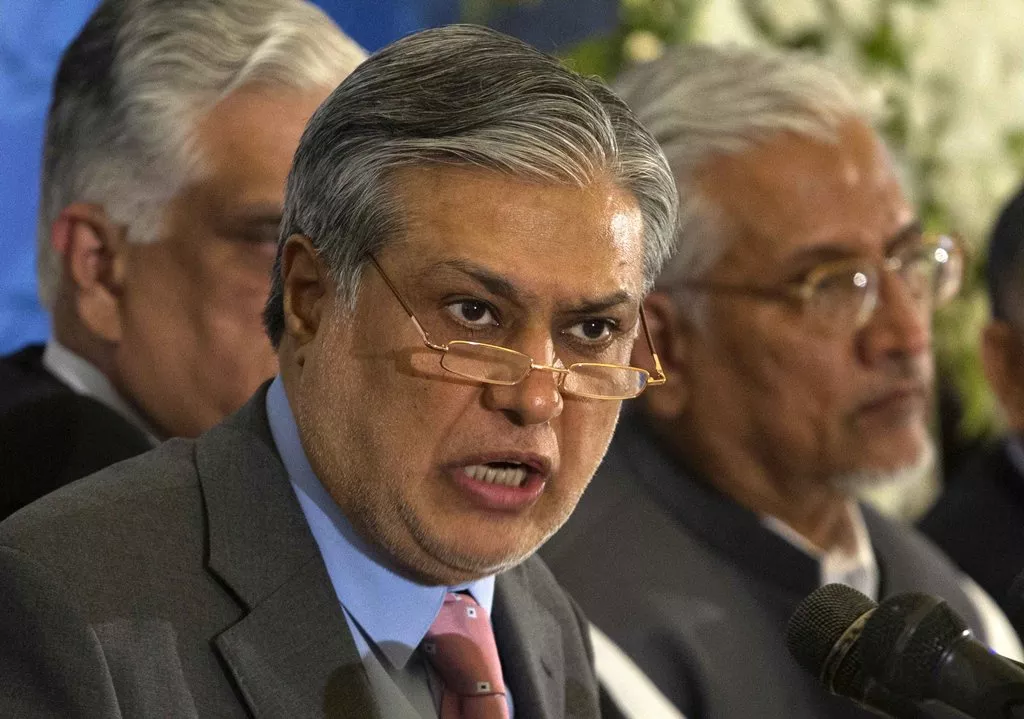
Deputy Prime Minister and Foreign Minister Senator Ishaq Dar has said Pakistan never considered using nuclear weapons while recently defending aggression by neighbouring India, describing Islamabad's military strikes as “measured” and “strictly in self-defence”.
In his first interview since a ceasefire took hold on Saturday, FM Dar told CNN that the situation had grown dangerously volatile after India’s cross-border airstrikes on May 7, but denied Islamabad ever planned a nuclear response.
“We were very sure that our conventional capacity and capabilities are strong enough that we will beat them both in air and on ground,” the foreign minister said.
The recent exchange of strikes marked the worst military confrontation between the two nuclear-armed neighbours since the 1971 war. Dozens of people were reported killed on both sides, while infrastructure was heavily damaged in contested border regions.
FM Dar referred to India’s actions as a “wishful attempt to establish its hegemony” in Kashmir. He said Pakistan had “no choice” but to respond to what he called an unprovoked act of aggression.
Despite several days of intense fighting, both sides agreed to a truce on Saturday following US diplomatic efforts. The ceasefire, brokered by Secretary of State Marco Rubio and Vice President JD Vance, came into effect amid reports of final bursts of shelling in Kashmir.
The foreign minister also said that there was no direct contact between Indian and Pakistani officials during the talks. Instead, communication was facilitated by Washington.
Indian Prime Minister Narendra Modi said earlier on Monday that New Delhi had only “paused” its offensive and warned of further retaliation if provoked.
FM Dar, however, rejected the suggestion that Pakistan had sought to de-escalate out of weakness. “They had seen what happened in the sky. They could see how serious the damage was,” he said.
He also reaffirmed Pakistan’s position that the conflict’s root cause lies in Kashmir – a disputed territory claimed in full by both India and Pakistan but administered in parts. The region has triggered three wars since the countries gained independence in 1947.
“Kashmir is the root cause of this regional instability,” FM Dar said. “Its future must be decided through self-determination.”
India blames Pakistan for supporting militant groups operating in Indian Illegally Occupied Kashmir – a charge Islamabad denies. India’s airstrikes followed the killing of tourists in Kashmir in April, which it accuses Pakistan of sponsoring the group. FM Dar condemned the killings and reiterated Pakistan’s stance against terrorism “in all its forms and manifestations”.
The foreign minister also raised concern over the water dispute linked to Kashmir’s rivers. He warned that New Delhi’s reported decision to block flows from the Chenab river could be seen as “an act of war” if not reversed.
Indian media reported last week that the government had reduced water flow from the Baglihar dam, potentially impacting Pakistan’s water supply.
The foreign Minister said the issue must be resolved in upcoming talks. “The ceasefire can only hold if such provocations are avoided,” he said.
Despite tensions, FM Dar expressed hope for peace. “We look forward to building a future that provides dignity for both sides,” he said. “We still hope sense will prevail.”
India-Pakistan ceasefire follows escalation, but fragile calm persists
A full and immediate ceasefire between India and Pakistan was announced on May 10 after days of heightened military exchanges that brought both nuclear-armed neighbours to the brink of war.
The announcement was first made by US President Donald Trump and later confirmed by Pakistan’s Prime Minister Shehbaz Sharif, Deputy Prime Minister Ishaq Dar, Indian External Affairs Minister S. Jaishankar, and US Secretary of State Marco Rubio.
Tensions flared following an April 22 attack in Pahalgam, Indian Illegally Occupied Jammu and Kashmir (IIOJK), which left 26 civilians dead.
India blamed Pakistan-based elements without presenting any evidence, Islamabad rejected the allegations. In response, India closed the Wagah border, revoked visas, and suspended the Indus Waters Treaty—moves Pakistan called an “act of war.”
The conflict intensified with India's missile attracks and drone incursions as it lauched its Operation Sindoor.
Pakistan's military launched Operation Bunyan-un-Marsoos in retaliation, and announced it had downed five Indian jets—including Rafales—and intercepted 77 Israeli-made Harop drones.
Following diplomatic intervention led by Washington, both sides agreed to halt military activity across land, air, and sea. However, hours after the truce, fresh skirmishes were reported along both sides of the Line of Control.
Explosions were heard in Srinagar and exchanges of fire were cited by officials on both sides, raising concerns over the ceasefire’s durability.
Pakistan’s Foreign Office reiterated its commitment to the ceasefire while accusing India of violations.
DG ISPR Lt Gen Ahmed Sharif Chaudhry stressed that Pakistan had not requested the truce, asserting that India initiated the ceasefire request following Pakistan’s retaliatory strikes. He described war between two nuclear powers as “inconceivable” and “an absurdity.”
Chaudhry confirmed that no Indian pilot was in Pakistani custody, dismissing viral claims as misinformation.
He called Operation Bunyan-un-Marsoos a unified national response to Indian aggression, noting Pakistan had delivered on its commitments to respond decisively and proportionately.
Cities across Pakistan observed Youm-e-Tashakkur (Day of Thanks) on Sunday to mark what was hailed domestically as a successful defence of national sovereignty.

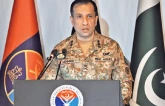




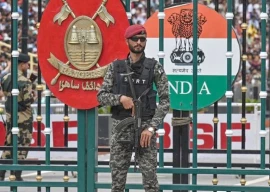






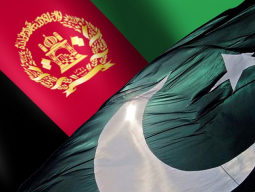
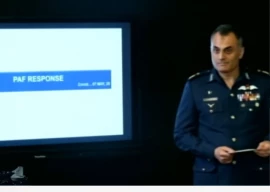

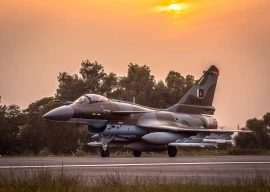
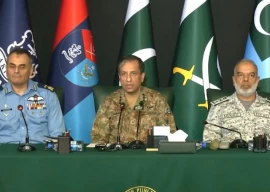






COMMENTS
Comments are moderated and generally will be posted if they are on-topic and not abusive.
For more information, please see our Comments FAQ